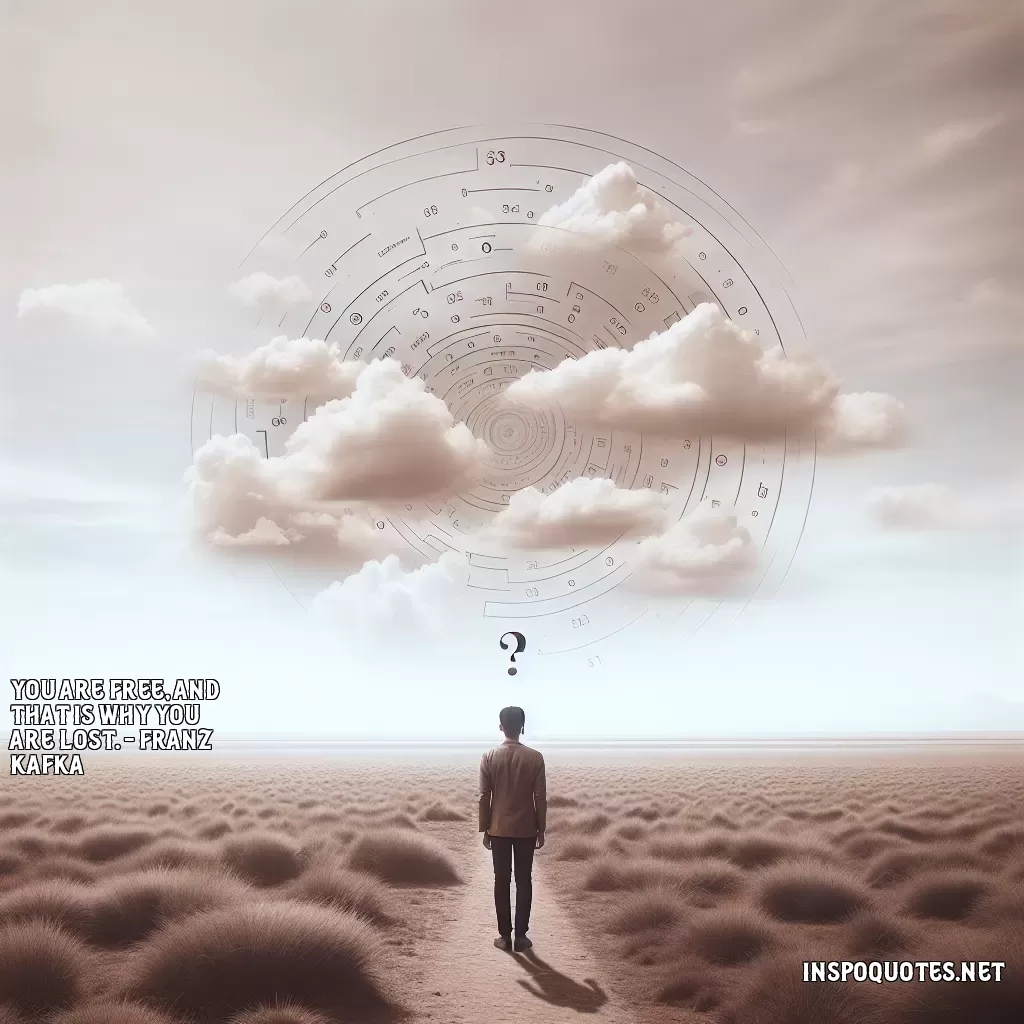
You are free, and that is why you are lost. - Franz Kafka
Author: Franz Kafka
👁️ 31 views
The quote "You are free, and that is why you are lost" by Franz Kafka explores the paradoxical nature of freedom and the challenges that come with it. At first glance, freedom seems like an unequivocal positive state, a goal that many individuals and societies strive to achieve. It represents the absence of constraints, the ability to choose, and the opportunity to forge one's path without interference. However, Kafka's quote suggests that this very freedom can lead to feelings of being lost, implying that with the removal of boundaries and guidelines comes a newfound uncertainty and responsibility. When we are truly free, we face an ocean of possibilities. This abundance of choice can be overwhelming. Without a clear direction dictated by external factors, individuals must navigate the complex terrain of life, making decisions about their identity, purpose, and direction. Freedom requires us to be active participants in our own destiny, which can be daunting because every choice we make has consequences and determines the course of our lives. In this way, freedom can lead to a sense of being lost, as we grapple with existential questions, uncertainty, and the pressure of shaping our existence with no predetermined path. Kafka, known for his explorations of complexity and absurdity in life, uses this quote to encapsulate the existential dilemma faced by individuals in modern society. As societal structures and traditions become less rigid, the individual's role becomes more prominent, intensifying the weight of personal responsibility. In essence, while freedom is a state of unlimited potential, it simultaneously imposes the burden of navigating life's myriad paths, leading to a paradoxical sense of freedom-induced confusion and bewilderment. Thus, Kafka captures the intricate dance between autonomy and disorientation that defines the human experience.
Quote By: Franz Kafka
Franz Kafka was a German-speaking Bohemian writer born on July 3, 1883, in Prague, now the Czech Republic. Known for his surreal and existential works, including "The Metamorphosis" and "The Trial," Kafka explored themes of alienation, anxiety, and bureaucratic absurdity. Despite publishing only a few short stories and novels during his lifetime, his influence on 20th-century literature remains profound, with his works gaining significant recognition posthumously.
Bio added on: 2025-02-14 00:08:55